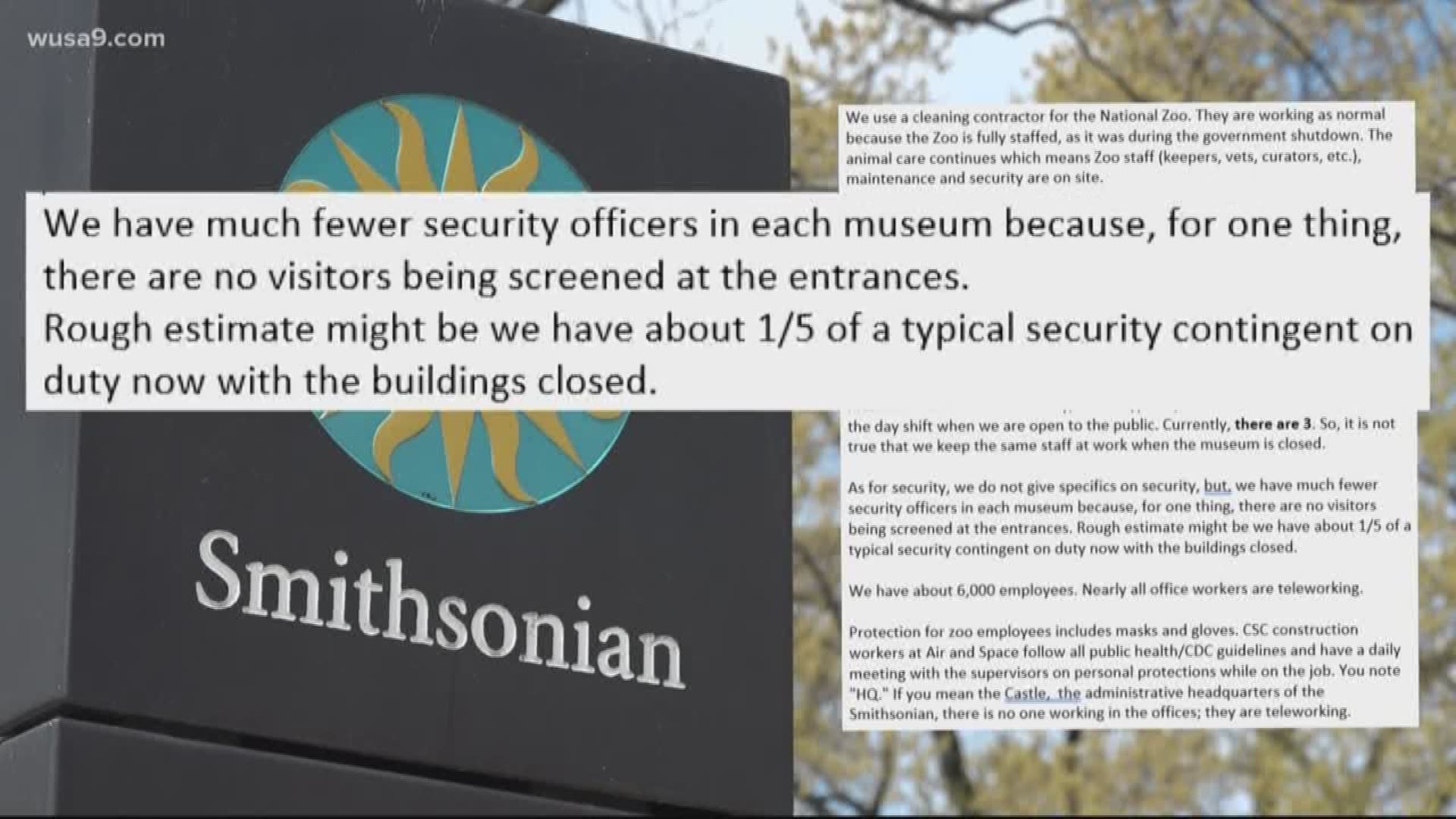WASHINGTON — A Smithsonian spokeswoman confirmed to WUSA9 Thursday there are still contractors working inside the Museum of American History on "small maintenance projects."
"They’re happy to have the work and they want to stay," Linda St. Thomas of the Smithsonian Institute said.
D.C.’s National Mall is filled with iconic American museums, treasures and artifacts. People have to be there to take care of them. But there are concerns being raised by employees that they don't feel the Smithsonian Institute is doing all it can to protect them.
"We need more security to monitor them as well as persons to maintain the facilities while they’re there," David Hendrick, president of AFGE Local 2463, said of the additional contractors working in the Museum of American History.
"And while the managers, the curators, all the top-level people, are at home eating Cheetos, watching Oprah on TV when they should be teleworking, the bargaining unit employees are risking their lives," Hendrick said.
Reggie Booth works inside the museum as a utility systems repair operator. His main job focus is on the building's HVAC system. He is an essential employee during the coronavirus pandemic, but he says, every additional person in the building increases his risk of exposure.
"We probably have about 20 people in the building on a daily basis who do not need to be there," Booth said.
A Smithsonian Institute spokeswoman provided WUSA9 a statement Thursday which says:
"We have much fewer security officers in each museum because, for one thing, there are no visitors being screened at the entrances," Thomas wrote in an email to WUSA9. "Rough estimate might be we have about 1/5 of a typical security contingent on duty now with the buildings closed."
In these extraordinary times, though, Booth said he would prefer limiting access to the building even further, unless they’re someone critical to protecting America’s historical treasures.
"We’ve spoken with management about our concerns and we’ve asked them to stop the construction until this is over, yet it still continues today," Booth said.

